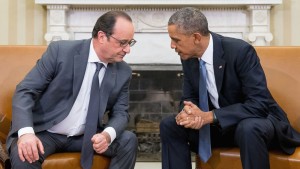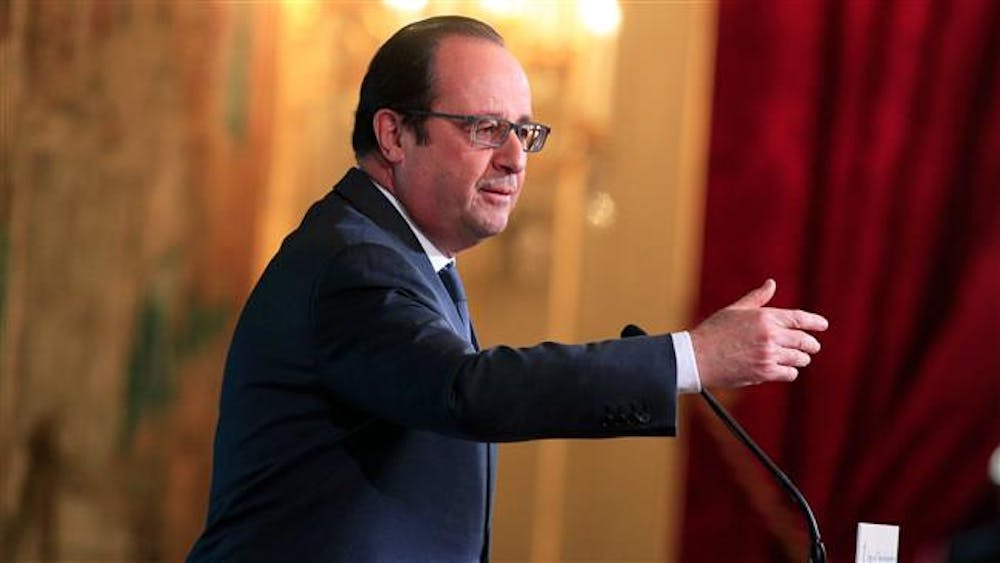By Gabrielle Beacken
Nation & World Editor
French President François Hollande talked with leaders from around the world during his international tour this past week in order to gain multilateral support for heightened attacks on the Islamic State in Syria and Iraq (ISIS), the New York Times reported. After the November terror attacks in Paris, which France said is a result of carefully coordinated ISIS violence, Hollande has been conducting a diplomatic route to try to rally other European leaders to join France against the Islamic State.
Hollande met with President Obama in Washington, D.C., on Tuesday, Nov. 24, according to CNN. Obama vowed to support France and intensify military attacks on ISIS, CNN reported.
“We love France for your spirit and your culture and your joie de vivre (joy of life),” Obama said in a joint press conference with Hollande, CNN reported. “Since the attacks, Americans have recalled their own visits to Paris... They’re part of our memories, woven into the fabric of our lives and our culture.”

Though the two leaders’ strategies may diverge when it comes to Russia’s level of involvement, the press conference was a symbol of unity and encouragement.
On Thursday, Nov. 26, Hollande met with Russian President Vladimir Putin in Moscow. While the two countries agreed to share intelligence with one another, Russia insisted that their efforts in Syria remain separate. The two leaders drastically diverge when it comes to dealing with Syrian President Bashar-al Assad. Russia claims that Assad and his army are important tools to fight to ISIS, while France said Assad should have no future role in Syria, New York Times reported.
Later that same day, Hollande met with strong diplomatic ally Great Britain Prime Minister David Cameron.
“Every day we fail to act is a day when ISIL (The Islamic State of Iraq and the Levant) can grow stronger and more plots can be undertaken,” Cameron told Parliament, attempting to induce lawmakers for airstrikes in Syria, the New York Times reported. “That is why all the advice I have received — the military advice, the diplomatic advice and the security advice — all says, yes, that the risks of inaction are greater.”
While Cameron believes he can garner airstrike support after the Paris attacks, several members of Parliament still remain skeptical about “an extended bombing campaign,” the New York Times reported. Trying to convince Parliament, Cameron said the Paris attacks “could have been in London. If ISIL had their way, it would be in London.”
While a number of European countries’ leaders join Hollande’s campaign against the Islamic State, leaders are still very aware of the potential repercussions of the involvement.
“Britain is already in the top tier of countries that ISIL is targeting,” Cameron said, the New York Times reported.







